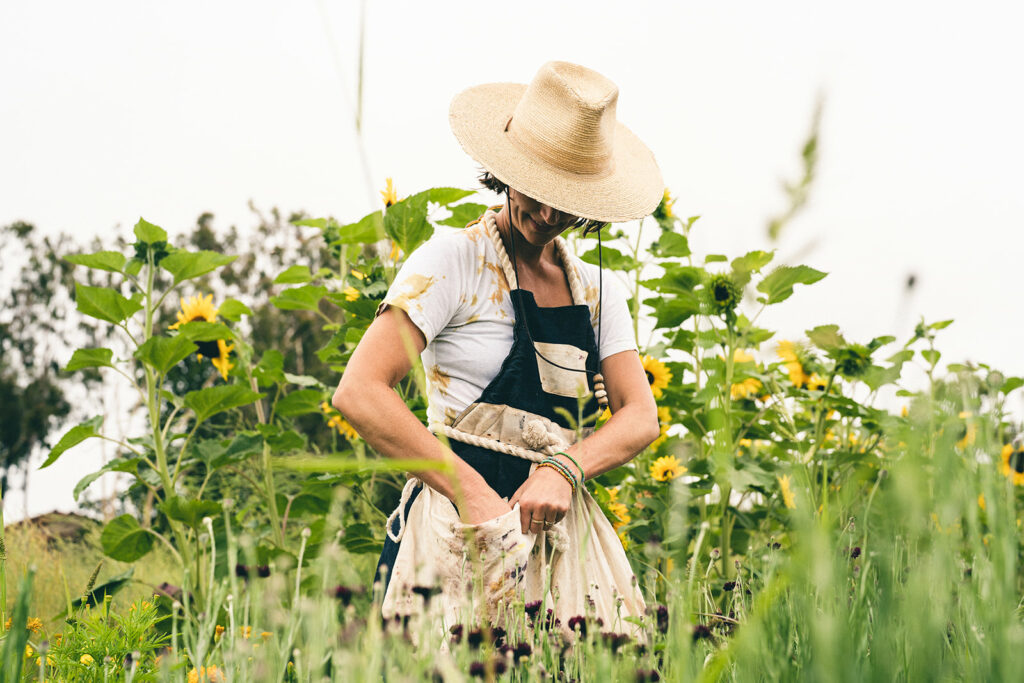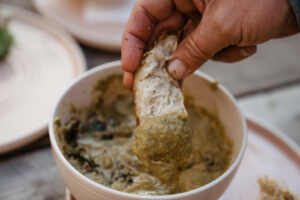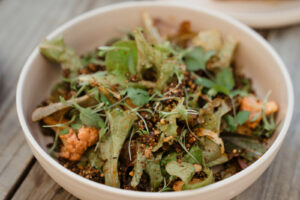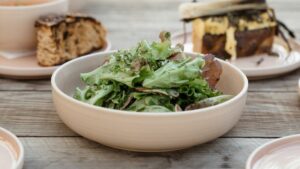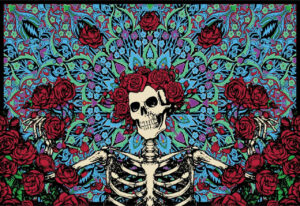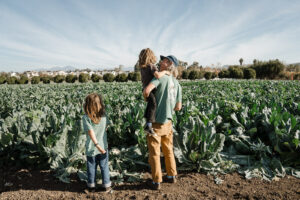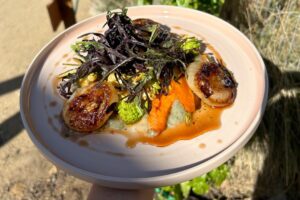
“You can see that it starts out as this light green, but as it oxidizes it becomes this really deep blue. I love working with indigo because the color is so rare in the natural world—we can coax out plenty of yellow, orange, red and purple but blue is so unique!”
It’s a cool, cloudy morning on the The Ecology Center farm, but the scene on this patch of land is anything but gray. Kristin is making her rounds between the abundant rows of indigo, marigold, scabiosa, and tango cosmos, each a jubilant burst of vivid colors and textures. Along with her friend Lydia Wendt, whose brand California Cloth Foundry produces textiles utilizing locally grown materials, Kristin is harvesting plants to create some test swatches for an upcoming clothing collection.
Kristin is an Orange County native who studied fashion at the Otis College of Art and Design in Los Angeles and was a resident at the Textile Arts Center in New York City. Twelve years ago, The Ecology Center founder (and now Kristin’s husband) Evan Marks asked her to lead a tie dye workshop on the farm. When she mentioned this to a friend, the conversation took a turn that would redefine her approach to clothing design.
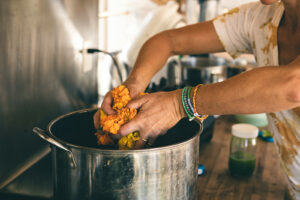
“My friend was an herbalist and also knew some things about natural dyes, she said to me, ‘You know you have cochineal growing right by your house, right?’” Kristin remembers of her introduction to the scale insect used to produce a brilliant, bright red pigment. “I said, ‘What’s cochineal?’ Then we went outside together and scraped some off a cactus and it completely blew my mind.”
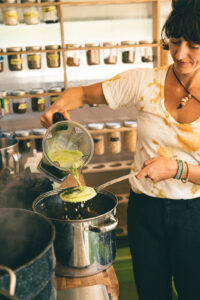
Kristin quickly fell in love with the process of creating natural dyes, not only because of the unique shades it offers, but also because the plants used in natural dyes can be sustainably harvested from local sources. In the years since, she’s become a natural dye evangelist, helping to spread the word through workshops at the farm and her clothing brand, All Species, which offers vibrant, one-of-a-kind garments dyed with natural pigments.
Together in The Ecology’ Center’s double-decker bus typically used for meal prep during Community Table dinners, Kristin and Lydia have set up a kind of makeshift color laboratory for the day. Little experiments bubble away on the stove or cool on the countertops as the pair heat pots of water to extract color from some plants, or use ice water to pull the deepest blues from indigo.
Kristin’s upcoming line of All Species garments, called “Wear the Land”, is her most powerful statement thus far. The collection utilizes locally sourced fibers and is dyed exclusively using plants that can be foraged or cultivated right here in Southern California, like California buckwheat, coastal sagebrush, mugwort, white sage, and indigo, scabiosa and dyers coreopsis (all of which are regeneratively grown at The Ecology Center).
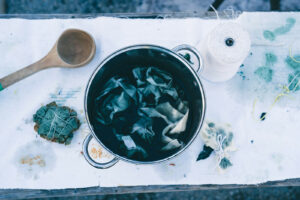
“I want this line to demonstrate our ability to connect with and embody the land and all of its medicine,” says Kristin as she hangs dyed swatches on a clothing line in front of the bus. “But more than anything, I want it to be a conversation that encourages people to think about where their clothing comes from and how we can create meaningful change.”
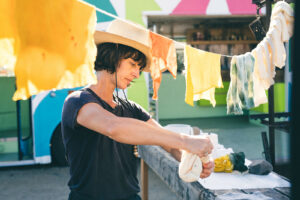
“Clothing is really analogous to food when you think about the problems with the current systems and the potential for change. For clothing, so much of the infrastructure and supply chain has moved abroad, and the products are made using harmful petrochemicals and workers aren’t paid a living wage. Our challenge is to build a new, local system. Something that hasn’t existed before—a new way of creating and relating to our garments and fibers that is beneficial to all species involved. We’ve seen the progress happening with food, so we know it can also happen with fibers.”
—Kristin Morrison


